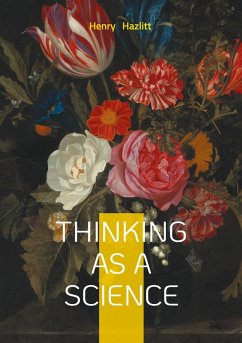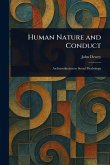' Human Nature and Conduct ' by John Dewey, published in 1922, examines the relationship between human nature and social behavior through the lens of pragmatist philosophy. Dewey breaks down human conduct into three fundamental elements: habit (behavior shaped by social repetition), impulse (innate driving forces), and intelligence (the creative capacity for adaptation). Dewey rejects traditional dichotomies such as instinct versus reason, proposing instead an integrated vision in which human beings, shaped by their environment, use intelligence as a tool to address moral and social challenges proactively. He demonstrates how collective habits form the basis of social cohesion, while intelligence allows individuals to transform impulses into ethical and innovative actions. This major work explicitly links ethics and democracy, arguing that a just society emerges when education fosters critical intelligence, enabling individuals to overcome dogma and act for the common good. The book naturally fits within the fields of pragmatist philosophy, social psychology, and applied ethics.
Bitte wählen Sie Ihr Anliegen aus.
Rechnungen
Retourenschein anfordern
Bestellstatus
Storno








